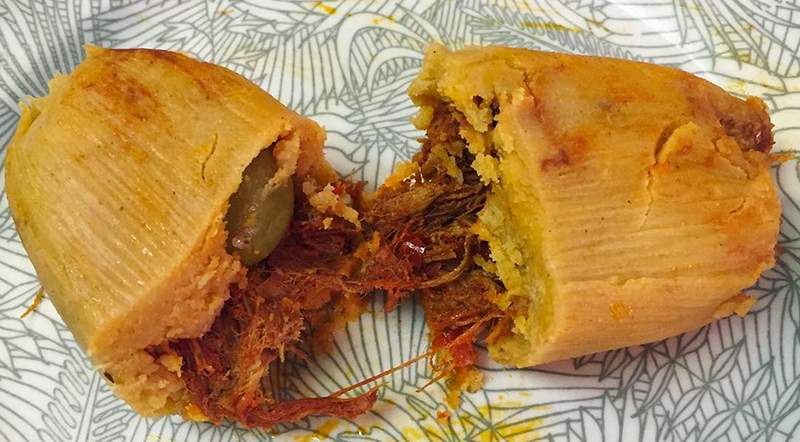Rubio’s, with its beer-battered fish tacos, might be San Diego’s most financially successful taco shop, but locals don’t consider it the best. They might prefer a ’bertos—Roberto’s, Gualberto’s, Jilberto’s, Aliberto’s, Rigoberto’s, or any of the hundreds of other ’bertos taco shops.
Their staple order? Perhaps a San Diego-style carne asada burrito, with grilled steak, cheese, pico de gallo, guacamole, and sour cream rolled in a large flour tortilla.
Maybe, instead, they’d prefer the San Diego-style California Burrito, with beans and rice, carne asada, guacamole, sour cream, onions, cilantro, and loads of french fries.
Some might prefer a slightly greener version of Mexican cuisine staples, though, and for them, entrepreneurs in California’s second largest city are carving out a new culinary niche: Mexican-style edibles.
Señorita Sensi’s mouthwatering San Diego-inspired dishes, for instance, are what you might expect from a native of San Diego’s south bay. Bite into her creamy elotes drenched in medicated butter, wash it down with her agua de limón, and, satiated, you’ll be higher than any wall Trump can build.
“San Diego is 20 minutes from the border,” says Señorita Sensi founder Yvanne Castañeda, who has family in Tijuana. “[Our Mexican food] is as authentic as it gets in the nation.”
“I wanted to focus on my culture,” she says. A legitimate medical patient, she sought to enter the cannabis industry but wasn’t sure how to do so. “I came up with medicated elotes, tamales, quesadillas, agua de limón, sopas, menudo, albóndigas.” She now works with HempMeds Mexico, Medical Marijuana Inc.’s distributor in the country.
After enjoying one of Señorita Sensi’s carne asada quesadillas (pico de gallo, guacamole, sour cream, cheese) in large, medicated flour tortillas, it’s time for dessert. Enter Don Pancho MMC.
“Two years ago, I noticed there was no Mexican edibles company catering to the Latino and Hispanic communities,” says Don Pancho, who moved from Guadalajara to San Diego as a toddler.
So, he started Don Pancho and began making medicated versions of his favorite childhood candies. “I was a little fat kid growing up eating all the Mexican candies,” he says. He makes them from scratch and with fresh ingredients.
Inspired by the versatility of companies like Venice Cookie Company, Don Pancho decided to make an entire line of Mexican candy edibles. His Piña Enchilada greets the tongue with chilis, lemon, and thick textured buttery-gooey goodness that is both sweet and sour. The subtler Cocada features vanilla and butter balanced by toasted coconut. Don Pancho’s Valentinaaa hot sauce would go great on Señorita Sensi’s San Diego Mexican food.
“People don’t understand how big this community is,” Pancho says, referring to the 40 percent of California residents with Latino-Hispanic heritage. “That is a huge market. And it’s not just for Hispanics and Latinos. Everyone likes Mexican food and candy.”
Medicated Mexican food and sweets might seem a contradiction due to the conservative elements of the culture, but this is changing among younger generations.
“When we are down there, it’s very hush-hush,” says Pancho, who first made sugarless medicated agua de jamaica—a typically infused beverage made from the roselle plant's sepals—for his formerly opiate-dependent grandma. “Up here, we all remember driving around, hiding, and smoking out, but it was never a big deal. Weed is more mainstream here. In Mexico, if you smell like weed, you’re a cholo. But all of a sudden everyone wants these candies now, and I tell them, ‘No, you have to come over here and get them.’”
OC Weekly food writer Gustavo Arellano, who’s arguably Mexican food’s foremost historian, sees medicated Mexican food as a natural evolution.
“Zapata would’ve approved!” he exclaims, referring to the leading figure of the Mexican Revolution. “It’s inevitable that cannabis connoisseurs would make Mexican food into edibles, given the cuisine’s popularity come munchies time.”











